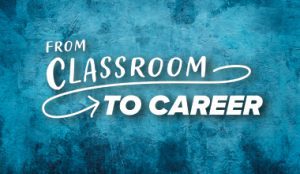Missing Link
We’re sorry, the article you are looking for is no longer available. Below are some Job Seeker related articles or you may use the search.
Shining a Light: Celebrating the Incredible Nurses Among Us
“Nursing is one of the fine arts: I had almost said ‘the finest of fine arts.’” — Florence…
Land Your Next Professional-Level Role with Specialized Recruiting Group
When you’re ready to take the next step in your career, the team at Specialized Recruiting Group (SRG)…
From Classroom to Career: Connect with Express
Congratulations on your graduation! Now, as you’re gearing up to take on the world, we know that navigating…
Why Summer Gives You a Job Search Edge
The sun is shining, the days are longer, and everyone seems to be in a more relaxed mood.…
Make Your First Job After College Count
Starting your first job after college is a big step, but it doesn’t have to define your entire…
Contract Work Is a Win-Win at Express
Contract work offers an array of exciting opportunities for both employees and employers, and at Express Employment Professionals,…
8 Resume Tips for College Grads with No Work Experience
Entering the job market as a fresh college graduate can be intimidating, especially without work experience. However, with…
Overcoming Job Market Hurdles: Solutions for Today’s Job Seekers
Most U.S. and Canadian job seekers are facing the challenge of finding jobs matching their qualifications and financial…
Your Guide to Find a Job with Express Healthcare Staffing
Finding a job on your own can be challenging, but Express Healthcare Staffing is here to support you…
Best Practices for Requesting Professional References
A professional reference can make or break a job opportunity. When employers request references, they’re asking for an…
The Competition Starts Now—Elite Trades Championship Series Qualifiers Are Open
Are you ready to put your trade skills and knowledge to the test? Qualifying rounds for the ServiceTitan…
Make Your Resume Pop with Powerful Metrics
What do you see when you look at your resume? If it’s just a sea of words, it’s…










